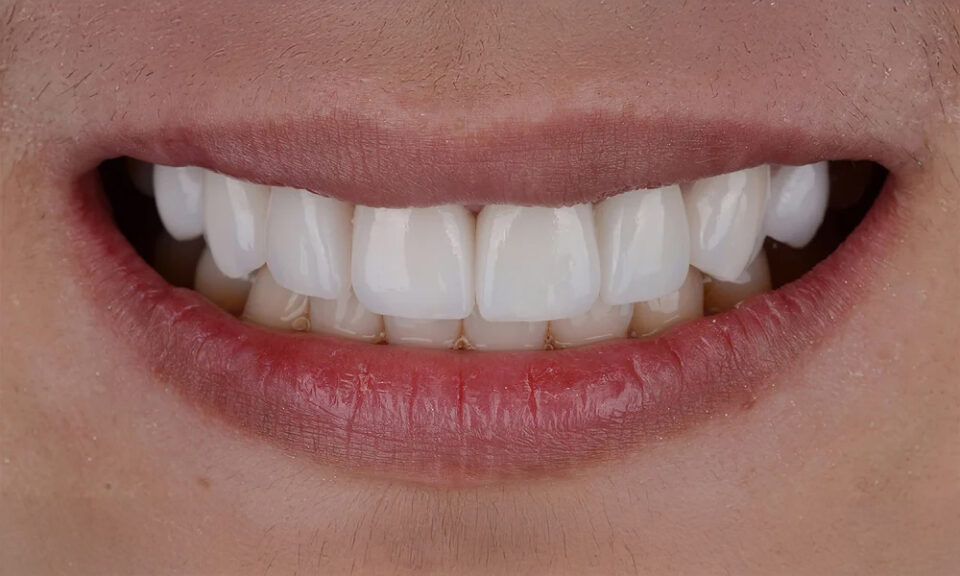Introduction
A chipped tooth can feel like a disaster, especially when it affects your confidence. But don’t worry—modern dentistry offers simple and effective solutions, like composite veneers. These thin layers of material are applied to your teeth to restore their natural look and function. But can they really fix chipped teeth? Let’s find out.
What Are Composite Veneers?
Composite veneers are thin layers of tooth-colored resin applied directly to the surface of teeth to improve their shape, size, and appearance. Unlike porcelain veneers, which are custom-made in a lab, composite veneers are sculpted directly on the teeth.
How Do Composite Veneers Fix Chipped Teeth?
When a tooth is chipped, composite veneers act as a protective layer, covering the damaged area and restoring its shape. The resin is carefully applied and shaped to blend seamlessly with the rest of your teeth, making the chip disappear like magic.
Composite vs. Porcelain Veneers
- Material: Composite veneers use resin, while porcelain veneers use ceramic.
- Cost: Composite is more affordable.
- Durability: Porcelain lasts longer but requires more investment.
- Procedure: Composite is a quicker, single-visit procedure, while porcelain needs multiple visits.
Who Is a Good Candidate for Composite Veneers?
You’re a good candidate if:
- You have mild to moderate chips or cracks.
- Your teeth are generally healthy with no major decay.
- You want a quick and cost-effective
- The Process of Getting Composite Veneers
- Consultation – The dentist examines your teeth and discusses your options.
- Tooth Preparation – Minimal shaping of the affected tooth.
- Application – Composite resin is applied and sculpted.
- Curing – A special light hardens the material.
- Polishing – The veneer is smoothed and adjusted for a natural look.
- Benefits of Composite Veneers
✔ Quick Fix: Done in a single visit.
✔ Affordable: Less expensive than porcelain.
✔ Minimally Invasive: No significant enamel removal.
✔ Natural Look: Blends well with real teeth.

Limitations and Considerations
While composite veneers offer many benefits, they are less durable than porcelain and can stain over time. If you consume a lot of coffee or red wine, maintenance is crucial.
How Long Do Composite Veneers Last?
On average, they last 5 to 7 years with proper care. Avoid biting into hard foods, and maintain good oral hygiene to extend their lifespan.
Caring for Your Composite Veneers
- Brush and floss daily to prevent staining.
- Avoid hard foods like ice and hard candies.
- Regular dental check-ups for maintenance.
How Much Do Composite Veneers Cost?
The cost varies based on location and the dentist’s expertise but generally ranges from $250 to $1,500 per tooth—a fraction of the cost of porcelain veneers.
Alternatives to Composite Veneers
- Porcelain Veneers: More durable but costlier.
- Dental Bonding: Similar process but for minor repairs.
- Crowns: Best for heavily damaged teeth.
Final Thoughts
Composite veneers are an excellent solution for fixing chipped teeth quickly, affordably, and effectively. If you’re looking for a fast way to restore your smile, they might be the perfect choice. However, they require proper care and maintenance to ensure longevity.
FAQs
1. Are composite veneers painful to get?
No, the procedure is generally painless and does not require anesthesia.
2. Can composite veneers fall off?
Yes, but with proper care and regular dental visits, they can stay intact for years.
3. Do composite veneers stain easily?
They can stain over time, especially if you frequently drink coffee, tea, or red wine.
4. Can I whiten composite veneers?
No, whitening treatments do not work on composite material. If they become stained, they may need to be replaced.
5. How soon can I eat after getting composite veneers?
You can eat right away, but avoid hard or sticky foods for the first 24 hours.
Composite veneers are a game-changer for those looking to fix chipped teeth. Want to see if they’re right for you? Book a consultation with your dentist today!

